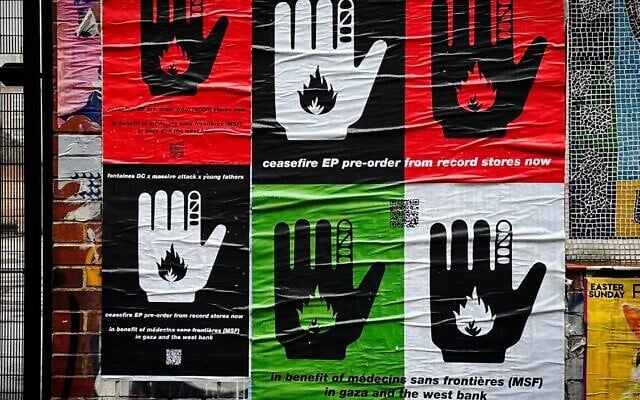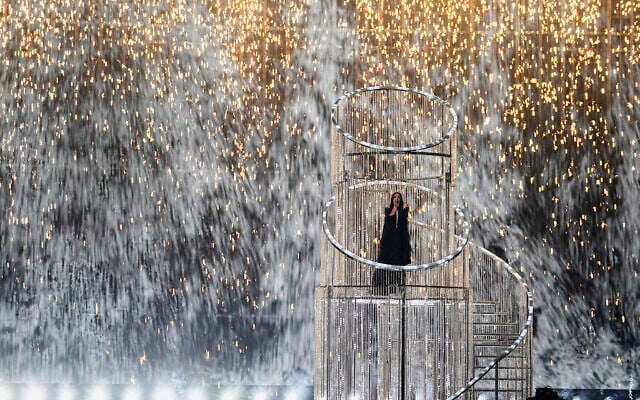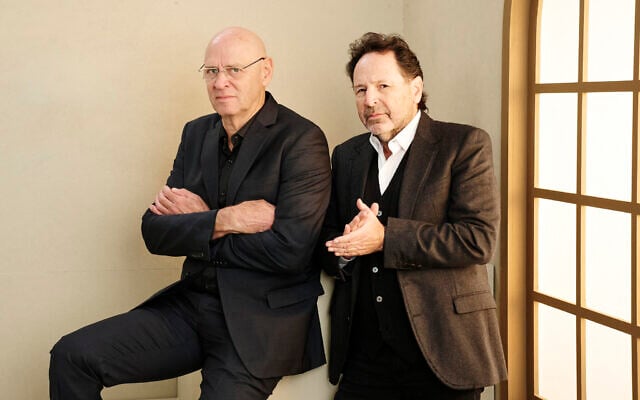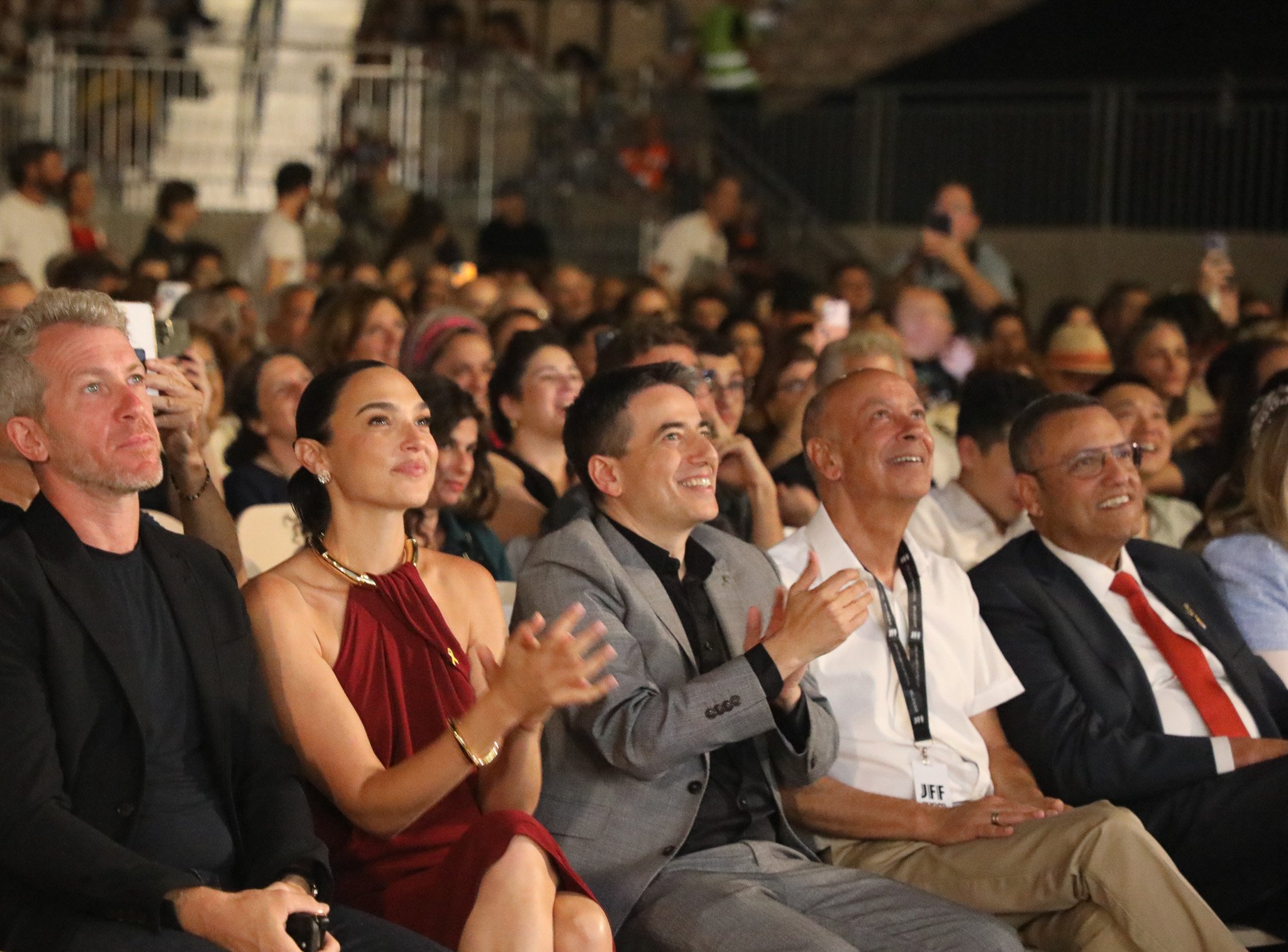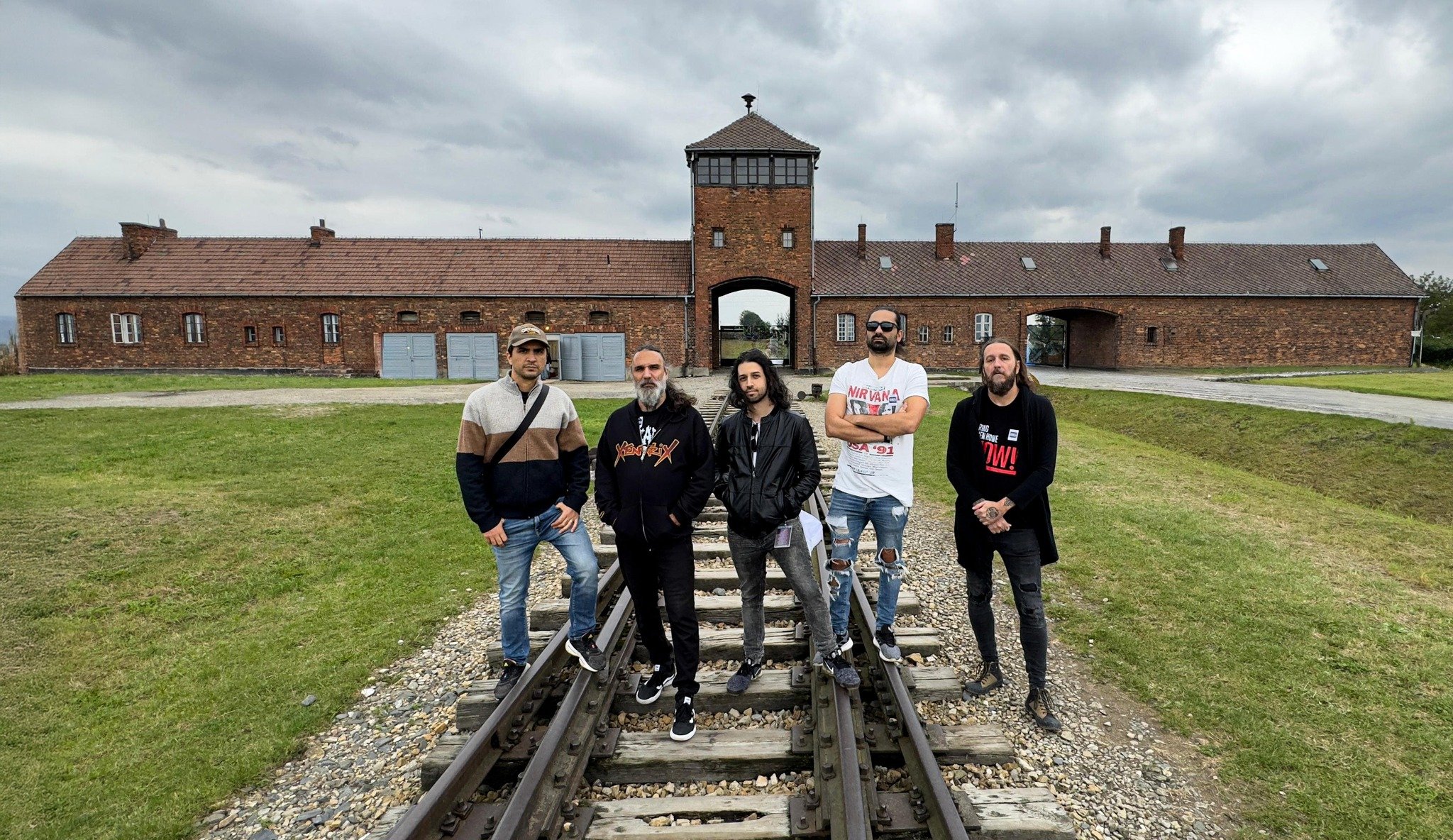As filmmakers pull screenings from Israeli festivals, Hollywood actors call to boycott the Israeli film industry, and several countries look to oust Israel from the Eurovision Song Contest, Israel’s global isolation has become impossible to ignore.
Pro-Palestinian groups have long targeted Israel’s soft cultural underbelly, petitioning musicians, filmmakers and others to boycott Israel or Israelis. Until recently, the campaign had met with middling success, with a handful of artists canceling shows over the years.
But with the international community increasingly angered by Israel’s conduct, particularly in Gaza, the movement to exclude the country from cultural life around the world seems to be taking hold in ways it never has before.
In early September, over 4,000 figures in the film industry — including prominent actors such as Joaquin Phoenix, Elliot Page and Guy Pearce — pledged to avoid working with Israeli institutions “that are implicated in genocide and apartheid against the Palestinian people.”
Days later, some 400 musicians asked for their works to be blocked from distribution in Israel as part of an initiative called “No Music for Genocide.”
Get The Times of Israel’s Daily Edition
by email and never miss our top stories
By signing up, you agree to the terms
The list includes British band Massive Attack, Scottish group Primal Scream, and American indie act Japanese Breakfast, as well as American singer-songwriter Carole King, Japanese pop star Rina Sawayama and Danish artist MO.
Massive Attack posted a statement on Instagram, comparing earlier effective artist action against apartheid South Africa with the “apartheid, war crimes and genocide now being committed by the state of Israel.”
A vinyl EP from February 2024 by Fontaines DC/Massive Attack/Young Fathers vinyl EP in support of Doctors Without Borders in Gaza and the West Bank (Courtesy)
The campaign has extended beyond the creative community and into the halls of power.
The governments of Spain, Ireland, Slovenia, Iceland and the Netherlands announced recently they would not take part in Eurovision 2026 if Israel is allowed to participate. Belgium and Finland have indicated they are considering withdrawing.
But not all countries agree with the Eurovision boycott.
“It’s precisely because Eurovision was born on the ruins of war that it should not become a scene of exclusion,” said Germany’s culture minister Wolfram Weimer in a statement.
The European Broadcasting Union is set to vote in early November to determine whether Israel will be allowed to participate in the 2026 contest.
Yuval Raphael from Israel performs the song ‘New Day Will Rise’ during the Grand Final of the 69th Eurovision Song Contest, in Basel, Switzerland, May 17, 2025. (AP Photo/Martin Meissner)
For now, Israel’s response appears to be business as usual.
On Monday, Kan, the Israeli Public Broadcasting Corporation, and TV production company Keshet announced that they will join forces again to select Israel’s Eurovision representative.
Following the same format as last year, Israel’s entry will be the winner of the talent show “HaKochav HaBa La’Eurovision” (The Next Star for Eurovision), which will begin airing on Keshet 12 following the fall holiday season.
“There is no reason why Israel should not continue to be a significant part of this cultural event, which cannot become political,” Kan CEO Golan Yochpaz said last month.
Despite battling constant controversy and noise, Israel’s contestants over the last three years have all placed in the top five of the campy contest, which chooses a winner via judges’ scores and country-by-country fan votes.
Noa Kirel reached third place in 2023, Eden Golan placed fifth in 2024 and Yuval Rafael was runner-up last year.
Screened out
Others are already feeling the boycott bite.
Tamir Hod, the artistic director of the upcoming Cinema South Festival in Sderot, one of a number of institutions named in the Hollywood pledge, said that a number of planned screenings had been nixed for political reasons.
“They’re pulling films from us, all over the place,” said Hod.
Among those abandoning the festival is French director Michel Gondry, who recently canceled the screening of his animated film, “Maya, Give Me a Title,” at the November film fest.
Other snubs have been more ambiguous, such as the Toronto International Film Festival’s decision to pull the October 7 documentary “The Road Between Us: The Ultimate Rescue.” The festival had claimed it nixed the screening due to legal concerns about airing body cam footage of the carnage filmed by the terrorists without obtaining the rights from the massacre’s perpetrators, but reversed course after significant backlash.
The film, which tells the story of how IDF Maj. Gen. (Res.) Noam Tibon saved his family and others during the October 7 invasion, won the People’s Choice Award for best documentary at the festival, though some still protested the screening.
(L-R) Noam Tibon and Barry Avrich of ‘The Road Between Us: The Ultimate Rescue’ pose in the Getty Images Portrait Studio Presented by IMDb and IMDbPro during the Toronto International Film Festival at InterContinental Toronto Centre on September 8, 2025, in Toronto, Ontario. (Gareth Cattermole / Getty Images via AFP)
Many artists have noted that those being targeted by the boycott moves have little or no control over Israel’s political and military machinations, and often disagree with them as well.
In response to the Hollywood letter, which also cited the Jerusalem Film Festival, executive director Roni Mahadav-Levin wrote in The Washington Post that the festival deeply shares the urgency and frustration expressed by its 4,000 signatories.
“We, too, wish we could do more to stop the violence that surrounds us,” Mahadav-Levin wrote in a statement published in the US newspaper.
At the opening of the 42nd Jerusalem Film Festival on July 17, 2025, honoree Gal Gadot (second from left), her husband Yaron Varsano (far left), festival director Roni Mahadev-Levin (middle), Daniel Mimran, chairman of the board of the Jerusalem Cinematheque (second from right) and Jerusalem Mayor Moshe Lion. (Sivan Farag)
He clarified that the Jerusalem Film Festival is not partnering with the government and is an independent, privately run NGO with full operational autonomy.
“The Jerusalem Film Festival has consistently and publicly called for an end to the war — onstage, in the press, and in both Hebrew and English,” the statement continued. “Our program features a wide range of voices, including Palestinian and Israeli filmmakers who speak out strongly against violence and the use of force.”
The show goes on
For years, the Israeli metal band Orphaned Land was seen as a potent symbol of peace, playing shows in Turkey and winning a following in the Arab and Muslim world.
But following the October 7, 2023 atrocities, lead singer Kobi Farhi postponed the band’s upcoming tour in Europe. The band, now with security detail, finally got on the road nearly a year later, playing over a dozen sold-out concerts in France, Germany and elsewhere.
The group hasn’t scheduled any international performances for 2025. “This whole year is just a fog,” Farhi recently told Haaretz.
Israeli heavy metal band Orphaned Land at Auschwitz-Birkenau in April 2025 (Courtesy)
Singer Noga Erez said in December 2024 that many of her scheduled festival and media appearances abroad were canceled because she is Israeli.
Nonetheless, she recently announced on social media that she’ll be performing at Coachella, one of the pop world’s biggest music festivals, in April 2026. Also on the Coachella lineup is Israeli DJ Sahar Z.
Erez is currently in the midst of a six-week North American tour, followed by several dates in Europe, and so far hasn’t mentioned any anti-Israel protests or interruptions.
The singer had announced VIP meet-and-greets with audience members before several shows that were later canceled.
Erez didn’t respond to The Times of Israel’s requests for comment, but fans on the social media platform Reddit surmised that security was probably the reason, given the current political climate.
Jazz bassist Omer Avital, who has lived and worked in New York for decades, now looks for opportunities to come to Israel after October 7 and the concurrent burst of anti-Israel sentiment and antisemitism in his adopted hometown as the Gaza war drags on.
“Personally, I haven’t felt anything yet [with the boycotts],” said Avital, “but the vibe is awful.”


